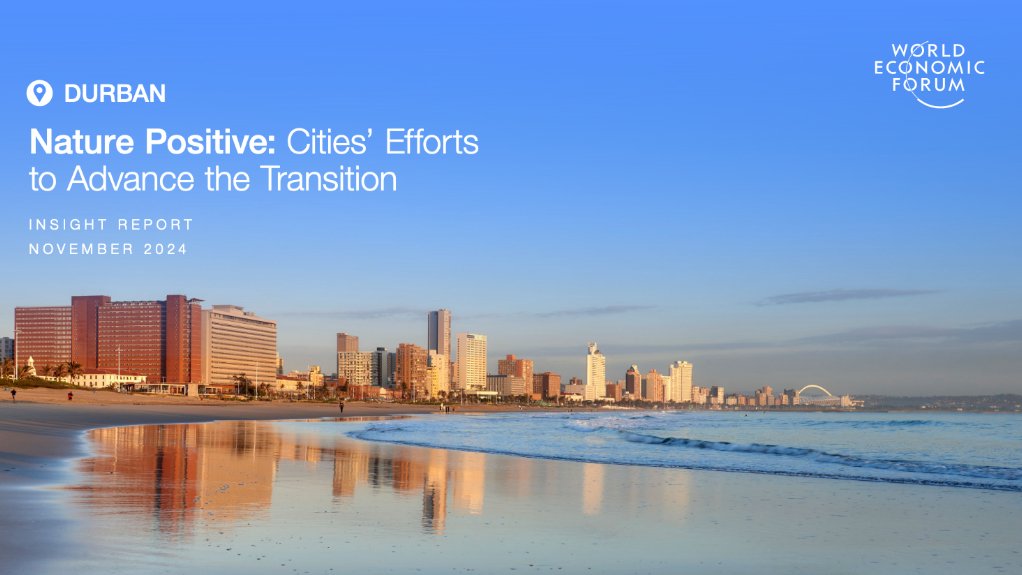- Nature Positive: Cities’ Efforts to Advance the Transition – Durban14.14 MB
This report is part of the World Economic Forum’s Nature Positive Transitions report series developed in collaboration with Oliver Wyman, which seeks to illuminate the ongoing efforts that sectors and cities around the globe are making to contribute to the Global Biodiversity Framework and foster a nature-positive future.
With over 95 000 hectares of protected natural land and water – nearly a third of its municipal area – Durban, South Africa’s second-largest city, is home to an extraordinary range of species, including 2 267 plants, 526 birds and 25 endemic vertebrates. Despite its natural wealth, Durban faces significant urban development challenges, such as climate resilience, housing, waste and water management, and energy access.
Despite pressing urbanisation issues, Durban’s innovative initiatives – like the Durban Metropolitan Open Space System (D’MOSS) and the Transformative Riverine Management Programme (TRMP) – are paving the way for a more sustainable, resilient and prosperous metropolitan area.
Today, only 0.3% of global urban infrastructure spending is dedicated to nature-based solutions, and a mere 37% of the world’s 500 largest cities have established specific strategies for the sustainable management and protection of natural resources.
This report serves as a comprehensive overview of the valuable work being done in the City of Durban and the eThekwini Municipality to enhance partnerships and support initiatives, structures, and plans to halt and reverse nature loss by 2030, while maximising the city’s economic and social potential.
Report by the World Economic Forum
EMAIL THIS ARTICLE SAVE THIS ARTICLE ARTICLE ENQUIRY
To subscribe email subscriptions@creamermedia.co.za or click here
To advertise email advertising@creamermedia.co.za or click here











